United Recovery Project | Drug Relapse Prevention
Table of Contents
Drug Relapse Prevention Florida
Addiction is one of the toughest disorders to overcome, and the rehabilitation process can feel a lot like riding a rollercoaster. Some individuals recover without any setbacks, while others struggle with repeated relapses over time.
As disheartening and dangerous as it can be, relapse is a normal part of the addiction recovery process. In fact, the relapse rate for substance abuse disorders stands at a whopping 40-60%. Relapse is, therefore, an obstacle many people encounter on their road to sobriety.
However, just because relapse is normal and expected doesn’t mean you’re powerless to prevent it. With targeted interventions and specialized techniques pioneered by addiction experts, relapse can be avoided.
Drug Addiction Relapse Prevention: Know The Stages
Many think that relapse is a single defined event, when in reality, it’s a gradual process that happens in three stages:
- Emotional relapse: Emotional relapse is the earliest precursor to self-destructive actions. During emotional relapse, you may experience negative emotions and neglect self-care. This often involves behaviors like cutting back on sleep, eating unhealthy foods, and emotional issues like feeling depressed, irritable, or moody. Most people don’t consider using drugs at this point.
- Mental relapse: Mental relapse is characterized by destructive thoughts. It’s when you begin to think about, or even outright crave, your drug of choice. Using again may consume your mind. You may even rationalize these thoughts and tell yourself that it wasn’t so bad when you used drugs.
- Physical relapse: The physical stage of relapse is when you act on your mental and emotional distress and begin using again. The downward spiral can be swift and devastating.
The earlier you catch your sobriety slipping, the greater your chances of stopping relapse in its tracks.
How Can Relapse Be Prevented?
You can prevent relapse with the right coping techniques. Here are some relapse prevention strategies to keep you on the straight and narrow:
- Recognize the stages of relapse and take action. Get help right away if you notice yourself drifting back into bad habits, neglecting your mental or emotional health, or displaying any of the symptoms of an impending relapse. Don’t struggle in isolation – contact your family, your support team, or a rehab center fast.
- Participate in an ongoing support group. Conversing with recovering addicts and sponsors in support groups can be immensely helpful on your journey to sobriety. Groups such as these help hold you accountable and give you a sense of comradery and support. They also offer you the chance to express your innermost struggles and learn more about addiction-related issues.
- Prioritize self-care. Fatigue and lack of sleep are both triggers for relapse. So, do your best to eat a well-balanced diet, get adequate sleep, and exercise regularly. Also, if you have been prescribed medication to manage your withdrawal symptoms, take it as directed.
- Identify and be on the lookout for your personal triggers. Some people are triggered when they are in a situation where other people are exhibiting risky behavior. Some people are triggered by being around someone who triggers their negative feelings. Internal triggers, like anger and anxiety, can also set you down the path to relapse. Try your best to avoid your known triggers.
- Think hard about the consequences of using again. If thoughts of using pop into your mind, think about the issues that drove you to seek treatment. Recall the risks to your mental and physical health and how relapsing could hurt your loved ones. Then reflect on your new sober life; consider all the great things you have accomplished and how far you can go if you continue down the right path. This is enough to keep some from relapsing.
There is no foolproof way to prevent relapse, but keeping the above tips and techniques in mind can greatly improve your chances of success.
Drug Relapse Prevention At United Recovery Project
If you’ve relapsed despite your best efforts, know that it’s not too late to reclaim your sobriety. United Recovery Project offers luxury addiction treatment programs tailored to your unique mental, emotional, and physical needs. If you want to know more about our drug and alcohol addiction treatment centers, reach out to us via our website or call us at 833.525.0166.
- Programs
- Women’s Detox Program
- Prescription Drug Detox Program
- Opioid Detox Program
- Opiate Detox Program
- Men’s Detox Program
- Meth Detox Program
- Medical Detox Program
- Holistic Detox Program
- Heroin Detox Program
- Drug Detox Program
- Relapse Prevention
- Psychotherapy Program
- Nutritional Education
- LGBTQ-Friendly Program
- Group Therapy
- Dialectical Behavior Therapy
- Cognitive-Behavioral Therapy
- Anger Management Therapy And Substance Abuse Detox
- 12 Step
- Detox Therapy Programs
- Alcohol Detox Program
- Cocaine Detox Program
- Benzo Detox Program
- Women’s Rehab Center
- Transitional Living Program
- Transitional Living Program
- Sober Living Homes
- Residential Rehab Programs
- Residential Addiction Rehab
- United Recovery Project | Drug Relapse Prevention
- Alcohol Detox Center
- Alcohol Detox Center
- Rehab Alumni Program
- Rehab Aftercare Program
- Rehab Aftercare Program
- Partial Hospitalization Program
- Outpatient Drug and Alcohol Rehab
- Medical Detox Center
- Intensive Outpatient Program (IOP)
- Holistic Drug Detox
- Heroin Detox Center
- Heroin Detox Center
- Dual Diagnosis Programs in New Jersey
- Drug Relapse Prevention in New Jersey
- Dual Diagnosis Programs in New York
- Drug Relapse Prevention in New York
- Dual Diagnosis Programs
- Drug Relapse Prevention
- Drug Relapse Prevention
- Rehab Alumni Program
- Alcohol and Drug Addiction Aftercare Programs
- Women’s Rehab Center
- Sober Living Homes
- Residential Rehab Programs
- Dual Diagnosis Programs
- Outpatient Drug and Alcohol Rehab
- Intensive Outpatient Program (IOP) For Addiction
- Partial Hospitalization Program (PHP)
- Residential Addiction Rehab
- Holistic Drug Detox
- Medical Detox Center
